Zihe Dong
Knowledge Distillation via Instance-level Sequence Learning
Jun 21, 2021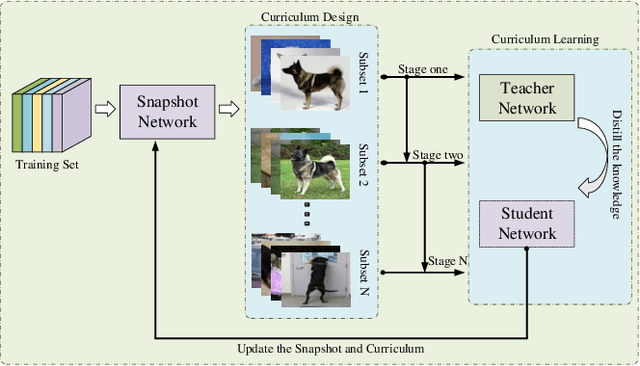

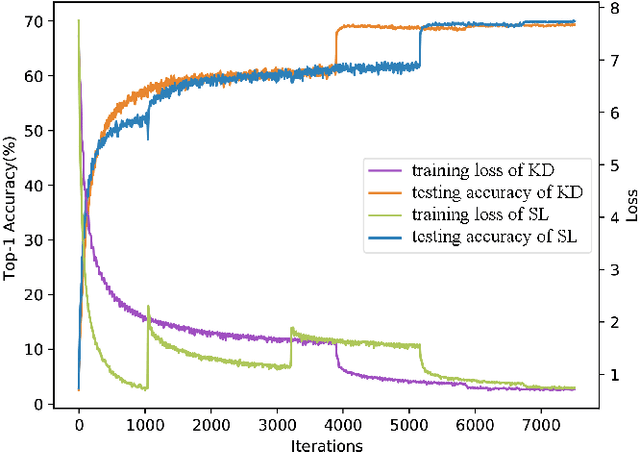
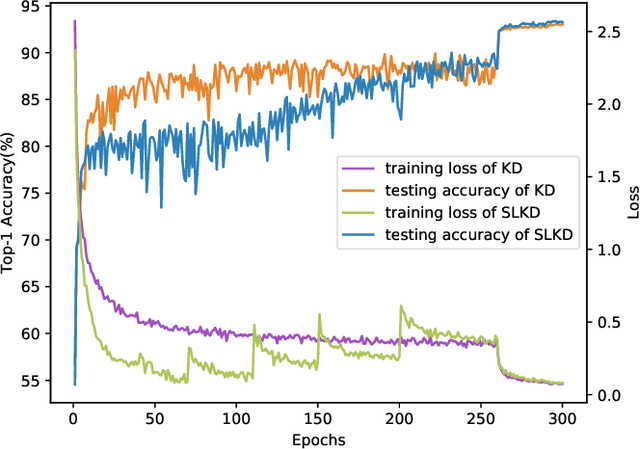
Abstract:Recently, distillation approaches are suggested to extract general knowledge from a teacher network to guide a student network. Most of the existing methods transfer knowledge from the teacher network to the student via feeding the sequence of random mini-batches sampled uniformly from the data. Instead, we argue that the compact student network should be guided gradually using samples ordered in a meaningful sequence. Thus, it can bridge the gap of feature representation between the teacher and student network step by step. In this work, we provide a curriculum learning knowledge distillation framework via instance-level sequence learning. It employs the student network of the early epoch as a snapshot to create a curriculum for the student network's next training phase. We carry out extensive experiments on CIFAR-10, CIFAR-100, SVHN and CINIC-10 datasets. Compared with several state-of-the-art methods, our framework achieves the best performance with fewer iterations.
Highlight Every Step: Knowledge Distillation via Collaborative Teaching
Jul 23, 2019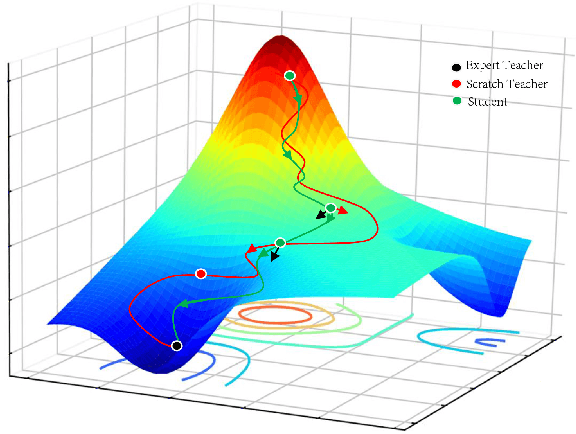


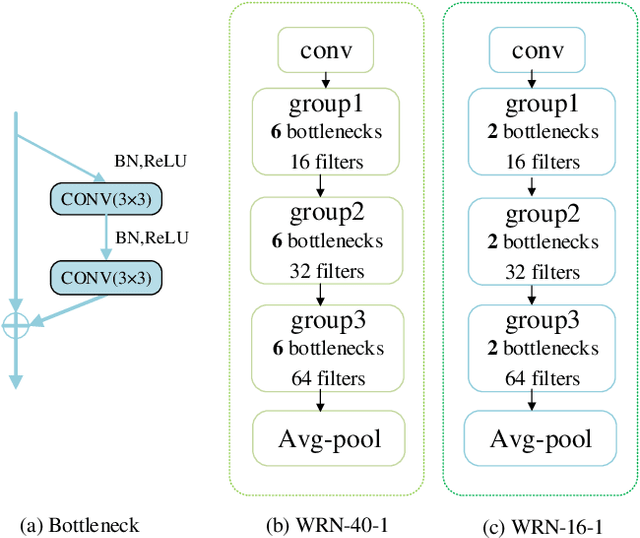
Abstract:High storage and computational costs obstruct deep neural networks to be deployed on resource-constrained devices. Knowledge distillation aims to train a compact student network by transferring knowledge from a larger pre-trained teacher model. However, most existing methods on knowledge distillation ignore the valuable information among training process associated with training results. In this paper, we provide a new Collaborative Teaching Knowledge Distillation (CTKD) strategy which employs two special teachers. Specifically, one teacher trained from scratch (i.e., scratch teacher) assists the student step by step using its temporary outputs. It forces the student to approach the optimal path towards the final logits with high accuracy. The other pre-trained teacher (i.e., expert teacher) guides the student to focus on a critical region which is more useful for the task. The combination of the knowledge from two special teachers can significantly improve the performance of the student network in knowledge distillation. The results of experiments on CIFAR-10, CIFAR-100, SVHN and Tiny ImageNet datasets verify that the proposed knowledge distillation method is efficient and achieves state-of-the-art performance.
 Add to Chrome
Add to Chrome Add to Firefox
Add to Firefox Add to Edge
Add to Edge